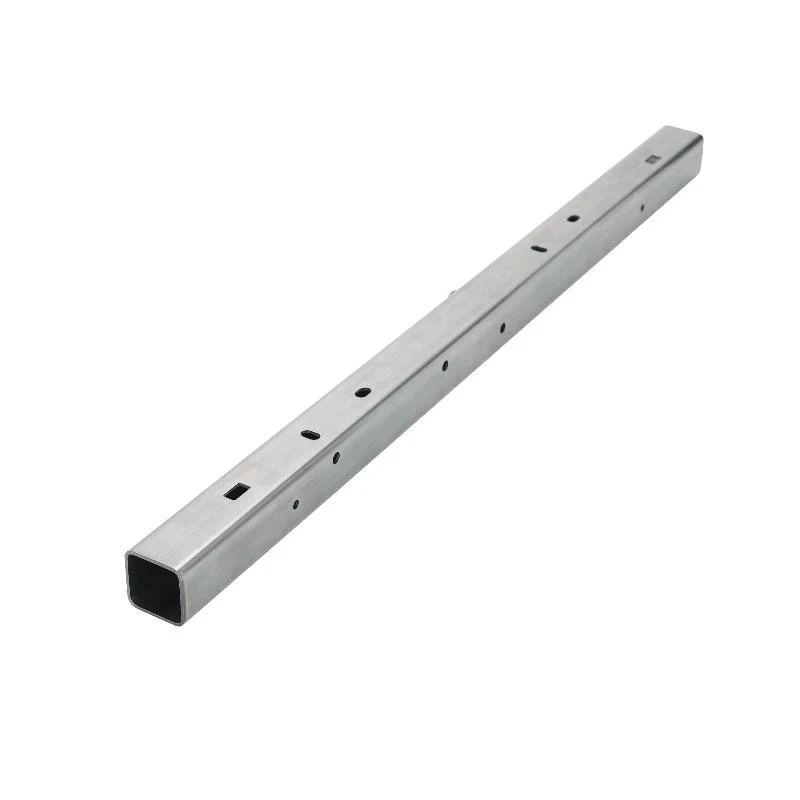precision stainless tubing
Dec . 10, 2024 09:40
Precision Stainless Tubing A Seamless Solution for Modern Industries
In today's increasingly demanding industrial landscape, the need for high-quality, reliable materials is more important than ever. One such material that has gained significant attention is precision stainless tubing. Renowned for its durability, resistance to corrosion, and versatility, precision stainless tubing finds applications across various sectors, including automotive, aerospace, medical, and construction. This article explores the advantages, manufacturing processes, and applications of precision stainless tubing while emphasizing its vital role in modern engineering solutions.
What is Precision Stainless Tubing?
Precision stainless tubing is a form of tubular metal made from stainless steel, characterized by its precise dimensions and smooth finishes. Unlike standard tubing, precision stainless tubing adheres to tight tolerances and specifications that are critical for specific applications. It is usually produced in both welded and seamless forms, with seamless tubing being particularly favored for high-pressure applications due to its superior strength and integrity.
Advantages of Precision Stainless Tubing
1. Corrosion Resistance One of the standout features of stainless steel is its exceptional corrosion resistance. The alloying elements, chiefly chromium, form a protective oxide layer that shields the tubing from oxidative damage. This property makes precision stainless tubing ideal for use in challenging environments, including chemical processing and marine applications.
2. Strength and Durability Precision stainless tubing showcases high tensile strength, allowing it to withstand extreme pressures and temperatures. This strength-to-weight ratio is particularly crucial in aerospace and automotive sectors, where every gram counts.
3. Biocompatibility In the medical field, the biocompatibility of stainless steel is invaluable. Instruments, implants, and devices made from precision stainless tubing can safely interact with biological systems, making it an excellent choice for surgical tools and medical devices.
4. Design Flexibility Precision stainless tubing can be manufactured in various shapes, sizes, and finishes, providing designers with the flexibility to create systems tailored to specific needs. Customization options include varying wall thicknesses, diameters, and length, making this material adaptable for many uses.
5. Sustainability Stainless steel is 100% recyclable, which adds to its appeal in modern manufacturing processes focused on sustainability. The substantial recycling rates of stainless steel make it an environmentally friendly choice compared to other materials.
precision stainless tubing
Manufacturing Processes
The production of precision stainless tubing typically involves several key steps
1. Material Selection High-quality stainless steel alloys, such as 304 and 316, are chosen based on the intended application. Each alloy has distinct properties, including varying levels of corrosion resistance and strength.
2. Forming The selected material is formed into tube shapes either through extrusion or by using a pipe-making process. For seamless tubing, substantial metal is heated and drawn through a mandrel to achieve the desired dimensions.
3. Cold Drawing After the initial forming, cold drawing is employed to refine the tube's dimensions and improve mechanical properties. This process involves pulling the tube through a die at room temperature, which enhances its strength and surface finish.
4. Finishing The final stage includes the finishing process, which may involve polishing, cleaning, and applying various surface treatments. This step ensures that the tubing meets the stringent surface quality standards expected in high-precision applications.
Applications of Precision Stainless Tubing
The applications of precision stainless tubing are vast and varied. In the aerospace sector, components used in landing gear systems and fuel lines often rely on the strength and durability of stainless tubing. In automotive manufacturing, it is crucial for hydraulic systems and exhaust systems. The medical industry utilizes precision stainless tubing for devices such as catheters and surgical instruments, where sterility and precision are paramount. Additionally, in construction, this tubing is employed in structural applications, handrails, and architectural features, showcasing its versatility.
Conclusion
In summary, precision stainless tubing is a cornerstone of modern manufacturing and engineering. Its unique properties, such as corrosion resistance, strength, and design flexibility, make it indispensable across various industries. As technological advancements continue to evolve, the importance of high-quality materials like precision stainless tubing will only grow, further cementing its role in shaping the future of manufacturing and engineering solutions. Emphasizing both performance and sustainability, precision stainless tubing stands out as a clear choice for those striving for excellence in their projects.
 Afrikaans
Afrikaans  Albanian
Albanian  Amharic
Amharic  Arabic
Arabic  Armenian
Armenian  Azerbaijani
Azerbaijani  Basque
Basque  Belarusian
Belarusian  Bengali
Bengali  Bosnian
Bosnian  Bulgarian
Bulgarian  Catalan
Catalan  Cebuano
Cebuano  Corsican
Corsican  Croatian
Croatian  Czech
Czech  Danish
Danish  Dutch
Dutch  English
English  Esperanto
Esperanto  Estonian
Estonian  Finnish
Finnish  French
French  Frisian
Frisian  Galician
Galician  Georgian
Georgian  German
German  Greek
Greek  Gujarati
Gujarati  Haitian Creole
Haitian Creole  hausa
hausa  hawaiian
hawaiian  Hebrew
Hebrew  Hindi
Hindi  Miao
Miao  Hungarian
Hungarian  Icelandic
Icelandic  igbo
igbo  Indonesian
Indonesian  irish
irish  Italian
Italian  Japanese
Japanese  Javanese
Javanese  Kannada
Kannada  kazakh
kazakh  Khmer
Khmer  Rwandese
Rwandese  Korean
Korean  Kurdish
Kurdish  Kyrgyz
Kyrgyz  Lao
Lao  Latin
Latin  Latvian
Latvian  Lithuanian
Lithuanian  Luxembourgish
Luxembourgish  Macedonian
Macedonian  Malgashi
Malgashi  Malay
Malay  Malayalam
Malayalam  Maltese
Maltese  Maori
Maori  Marathi
Marathi  Mongolian
Mongolian  Myanmar
Myanmar  Nepali
Nepali  Norwegian
Norwegian  Norwegian
Norwegian  Occitan
Occitan  Pashto
Pashto  Persian
Persian  Polish
Polish  Portuguese
Portuguese  Punjabi
Punjabi  Romanian
Romanian  Samoan
Samoan  Scottish Gaelic
Scottish Gaelic  Serbian
Serbian  Sesotho
Sesotho  Shona
Shona  Sindhi
Sindhi  Sinhala
Sinhala  Slovak
Slovak  Slovenian
Slovenian  Somali
Somali  Spanish
Spanish  Sundanese
Sundanese  Swahili
Swahili  Swedish
Swedish  Tagalog
Tagalog  Tajik
Tajik  Tamil
Tamil  Tatar
Tatar  Telugu
Telugu  Thai
Thai  Turkish
Turkish  Turkmen
Turkmen  Ukrainian
Ukrainian  Urdu
Urdu  Uighur
Uighur  Uzbek
Uzbek  Vietnamese
Vietnamese  Welsh
Welsh  Bantu
Bantu  Yiddish
Yiddish  Yoruba
Yoruba  Zulu
Zulu 












